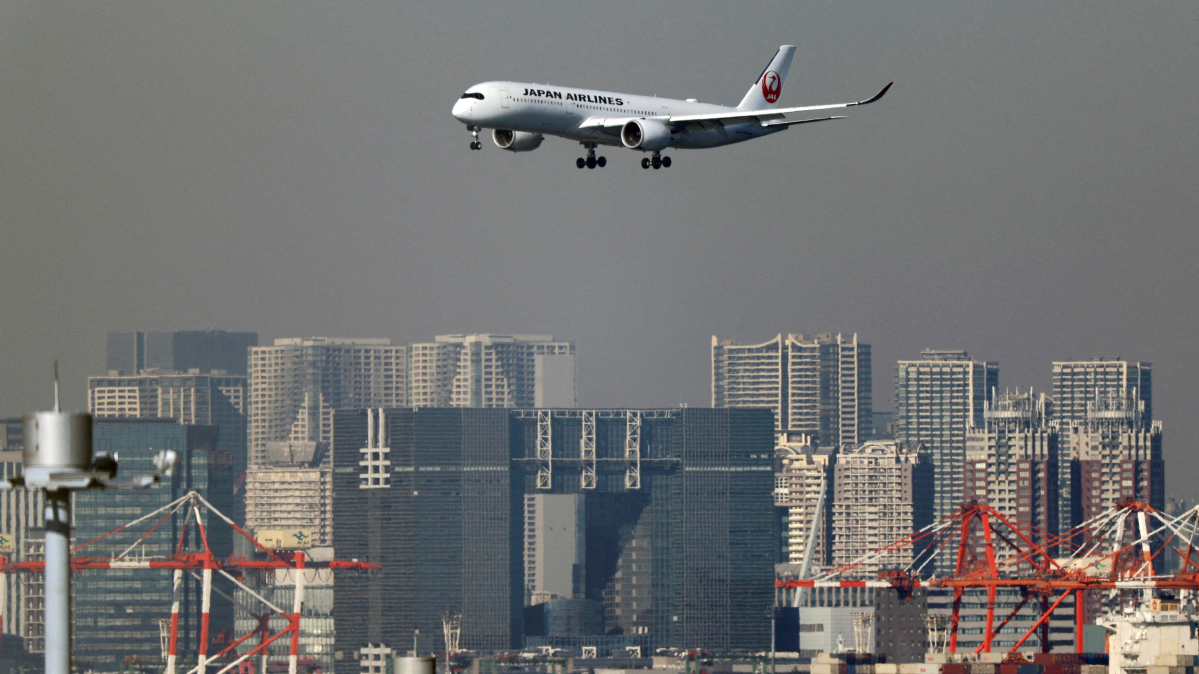live Middle East conflict: Key developments on Wednesday as U.S. submarine sinks Iranian warship
A torpedo from a U.S. submarine sunk an Iranian warship off the coast of Sri Lanka, U.S. Secretary of Defense, Pete Hegseth told reporters as ...

Japan’s tourism sector is bracing for heavy economic fallout after China warned its citizens against visiting, setting off a wave of cancellations that analysts estimate could cost the economy more than $14.23 billion a year.
The travel warning came after Japanese Prime Minister Sanae Takaichi told lawmakers that a Chinese attack on Taiwan threatening Japan's survival could trigger a military response. Beijing has demanded Takaichi retract her remarks. However, Tokyo has said they are in line with the government's position.
Since then small and mid-sized operators, many of which cater largely to Chinese group tours, are among the first to feel the impact. Within days, Tokyo-based tour operator East Japan International Travel Service says it lost 80% of its bookings for the remainder of the year, highlighting how quickly the sector has been hit.
Tourism-related stocks have also slid sharply since Friday, reflecting concerns of a broader slump.
More than 10 Chinese airlines have already offered refunds on Japan-bound routes through to 31 December, and one airline analyst estimates that around 500,000 tickets have been cancelled.
Analysts warn that if the freeze on travel continues, the losses could deepen well into next year, threatening the broader recovery of Japan’s tourism-dependent regions.
China and Hong Kong together account for around one-fifth of all tourist arrivals in Japan, according to official data.
Tourism makes up roughly 7% of Japan’s GDP, the World Travel & Tourism Council says, and has been a key driver of post-pandemic growth.
Imports of seafood
Meanwhile, the escalataing diplomatic dispute between Asia's top two economies has meant China is now banning all imports of Japanese seafood according to reports on Wednesday.
Asked about the reports at a press conference, China's Foreign Ministry Spokesperson Mao Ning said, "Under the current circumstances, even if Japanese seafood were to be exported to China, it would find no market."
China had said in June that it would resume importing Japanese seafood products from all but 10 of Japan's 47 prefectures.
The re-imposition will be a painful blow for many companies eager to re-enter a market that previously accounted for more than a fifth of all Japan's seafood exports.
Nearly 700 Japanese exporters had applied to re-register for shipments to China, Japanese Agriculture Minister Norikazu Suzuki told reporters on Tuesday. However, only three had been approved to date.
Before the 2023 ban, China was Japan's top scallop buyer and a major importer of sea cucumbers.
U.S. President Donald Trump said the U.S. military has enough stockpiled weapons to fight wars "forever"; in a social media post late on Monday. The remarks came hours before conflict in Iran and the Middle East entered its fourth day.
U.S. first lady, Melania Trump chaired a UN Security Council meeting on children and education in conflict on Monday (2 March), a move criticised by Iran as hypocritical following U.S. and Israeli strikes that triggered a UN warning about risks to children.
A torpedo from a U.S. submarine sunk an Iranian warship off the coast of Sri Lanka, U.S. Secretary of Defense, Pete Hegseth told reporters as the Iranian conflcit entered its fifth day on Wednesday.
The U.S. embassy in Riyadh was hit by two drones resulting in a limited fire and some material damage, the kingdom's defence ministry said in a post on X on Tuesday, citing an initial assessment.
Shahid Motahari Sub-Speciality Hospital in northern Tehran and parts of the Golestan Palace were bombed on day two of the U.S.‑Israel strikes. AnewZ Touraj Shiralilou is in Iran's capital city and said that the facility was flattened in an airstrike.
U.S. Defense Secretary Pete Hegseth says the United States is making gains in its conflict with Iran after a key Iranian naval target was destroyed, confirming that the strike was carried out by a U.S. submarine off the coast of Sri Lanka. Rescue efforts are now under way for the ship’s crew.
Start your day informed with AnewZ Morning Brief. Here are the top news stories for the 4th of February, covering the latest developments you need to know.
Strikes across the Middle East are intensifying, fuelling travel disruption, driving up global energy prices and forcing diplomatic missions to shut their doors.
U.S. President Donald Trump has said the United States has a “virtually unlimited supply” of munitions and is capable of sustaining military action indefinitely, as the conflict with Iran entered its fourth day.
The United Nations has called for an investigation into a deadly attack on a girls’ primary school in Iran, which Iranian officials say has killed more than 100 children. The U.S. has said its forces “would not” deliberately target a school.
You can download the AnewZ application from Play Store and the App Store.

What is your opinion on this topic?
Leave the first comment